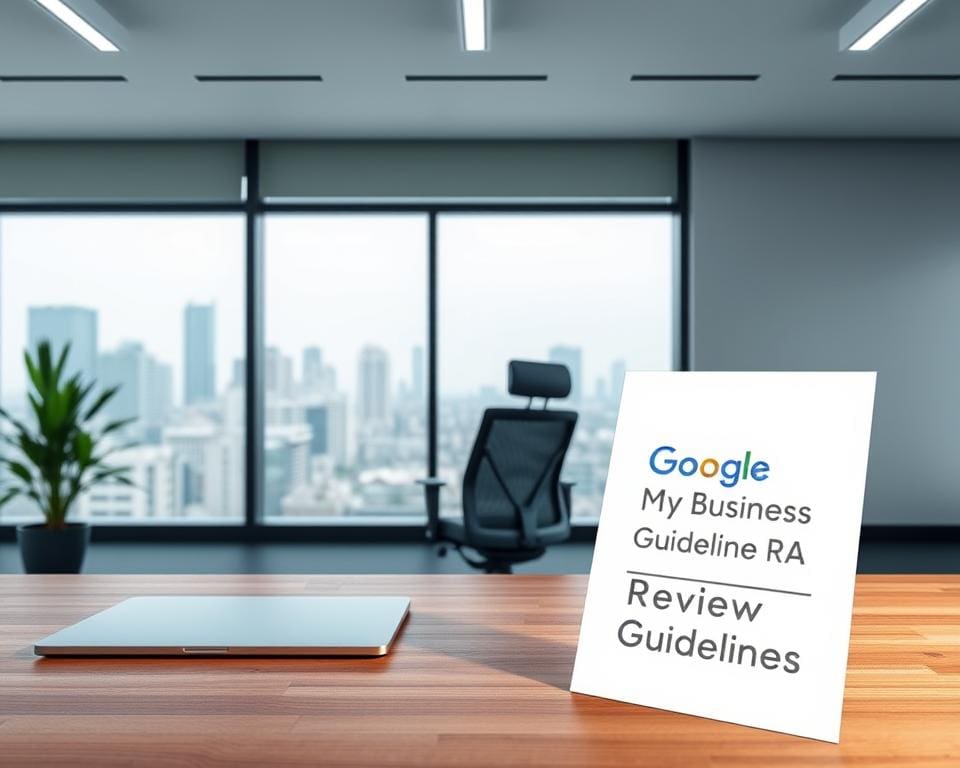In today’s digital age, Google reviews play an essential role in shaping consumer decisions, making it crucial for both users and businesses to understand why Google is removing reviews. The integrity of online reviews is paramount, as it determines trustworthiness on platforms that many depend on for guidance. The review removal policy is not merely a regulation; it is a protective measure that ensures the reliability of feedback available to consumers. As we delve into the mechanics behind these removals, we will uncover the principles that govern Google’s review management and their significance to all stakeholders involved.
Understanding Google’s Review Policy
In the ever-evolving digital landscape, a clear understanding of Google’s review policy becomes essential for businesses and users alike. The foundation of this policy lies in the Google My Business review guidelines, which aim to foster an honest and transparent environment for feedback. Adhering to these guidelines ensures that both the spirit of constructive criticism and legitimate praise shine through in Google reviews.
Overview of Google’s Review Guidelines
The Google My Business review guidelines outline several principles that users must follow when submitting reviews. These guidelines promote fairness and authenticity in the review process. Key points include:
- Reviews should reflect genuine experiences with the business.
- Obscene, spammy, or misleading content is strictly prohibited.
- Users must refrain from posting reviews on behalf of others.
Understanding these guidelines not only educates users but also empowers businesses to cultivate positive interactions with their clientele. A commitment to following these principles can greatly reduce negative repercussions associated with review moderation.
How Google Reviews Are Moderated
Google employs a robust review moderation system that combines automated technology with human oversight. This dual approach is designed to ensure compliance with the established Google My Business review guidelines and to maintain the integrity of Google reviews. Automated systems quickly identify potential violations, while human moderators conduct in-depth evaluations when necessary.
This comprehensive moderation process plays a crucial role in maintaining a trustworthy platform for customer feedback. By understanding how reviews are moderated, businesses can better align their review strategies to avoid pitfalls that might lead to review removals.

Why Is Google Removing Reviews
The removal of reviews by Google often stems from specific policy violations or fraudulent activity. Understanding the underlying reasons can empower both users seeking authentic feedback and businesses aiming to maintain a strong online presence.
Common Reasons for Review Removals
There are various Google reviews removal reasons that warrant attention. Some of the most frequent include:
- Spam and fake reviews: Reviews that appear to be fabricated or are repetitively posted can lead to deletion.
- Inappropriate content: Reviews containing offensive language or harassment violate Google’s policies.
- Terms of service violations: Any review that breaches Google’s terms risks removal, impacting the overall credibility of the business.
Impact of Policy on Users and Businesses
The impact of deleted reviews on business can be significant. When reviews are removed, businesses face potential damage to their reputation, which can disrupt customer trust and deter potential clients. For users, this removal affects their user experience, diminishing access to valuable information that guides their purchasing decisions. It is essential for both users and businesses to understand these dynamics, as they directly influence engagement and satisfaction in the digital marketplace.
Google Reviews Removal Reasons
Understanding the reasons behind the removal of reviews on Google is essential for both users and businesses. Reviews classified as spam can distort the authenticity of a business’s reputation. Inappropriate reviews involving hate speech or offensive language breach the community standards set forth by Google. Violations of Google’s terms of service also lead to the deletion of reviews, highlighting the importance of compliance in digital spaces.
Spam and Fake Reviews
Spam reviews undermine trust and can mislead potential customers. These reviews often originate from automated bots or compensated individuals, creating a false impression of a business’s quality. Reporting spam reviews not only protects the integrity of the review system but also supports businesses striving for genuine feedback.
Inappropriate Content in Reviews
Inappropriate reviews encapsulate content that is offensive or damaging. Such reviews can include hate speech, threats, or any language that does not align with community standards. This type of content not only tarnishes a business’s image but may also lead to the removal of the review by Google to maintain a safe and respectful environment for all users.
Violation of Google’s Terms of Service
Any review that violates Google’s terms of service is subject to deletion. This includes attempts to manipulate ratings or post irrelevant content. Familiarity with these guidelines helps users and businesses navigate the review landscape effectively, ensuring that they contribute positively to the online community.
Negative Reviews Removal Policy
Understanding the negative reviews removal policy is essential for businesses navigating online feedback. Identifying ineligible reviews can prevent unnecessary losses and maintain a solid reputation. Differentiating between constructive criticism and reviews that fail to meet Google’s review guidelines often sets the path for successful brand management.
How to Identify Ineligible Reviews
Recognising ineligible reviews requires a keen eye on policy adherence. Businesses should look for certain characteristics that align with Google’s review guidelines. These may include:
- Spammy behaviour, such as repetitive posts or irrelevant content.
- Use of inappropriate language or personal attacks against staff or other customers.
- Content that does not reflect an authentic transaction or experience.
- Reviews intended to mislead potential customers or those aimed at damaging a company’s reputation.
By focusing on these criteria, businesses can effectively engage with negative feedback while ensuring compliance with the negative reviews removal policy. This understanding fosters a healthier dialogue between companies and customers, leading to improved outcomes for all parties involved.
Impact of Deleted Reviews on Business
In today’s digital landscape, the impact of deleted reviews on business extends far beyond simple numbers. These reviews play a crucial role in shaping the reputation of a brand and influence customer perceptions. When Google removes reviews, businesses often face significant challenges in managing their reputations.
Reputation Management Challenges
One of the primary challenges businesses encounter involves maintaining a positive image amidst fluctuating review availability. A reduced number of reviews can create an inconsistency that leads customers to question the credibility of the business. Thus, effective reputation management strategies become essential to mitigate the adverse effects caused by absent feedback.
Effects on Customer Trust and Loyalty
Deleted reviews can considerably affect customer trust and loyalty. When potential customers see a lack of recent feedback or experience a disparity in review numbers, they may hesitate to engage. Building and sustaining customer loyalty requires transparency, which is compromised when reviews are inexplicably removed.
Impact on Local SEO Rankings
The connection between reviews and local SEO rankings cannot be underestimated. A strong collection of positive reviews contributes to improved visibility in search results. Consequently, when reviews are deleted, businesses may witness a decline in their ranking positions, making it harder for them to attract local customers. Understanding these dynamics is vital for anyone looking to thrive in a competitive environment.
Google My Business Review Guidelines
Understanding the guidelines set by Google My Business is critical for both businesses and customers. These guidelines ensure that reviews remain valuable and informative. In this section, we will explore the key criteria for acceptable reviews, as well as the significance of authenticity in reviews.
Key Criteria for Acceptable Reviews
Google My Business provides definitive guidelines that define acceptable reviews. Central to these criteria are the following elements:
- Relevance: Reviews should pertain to the experience of the customer with the business.
- Specificity: Descriptive feedback detailing specific aspects of the service enhances the review’s value.
- Respectfulness: Comments should refrain from inappropriate language or personal attacks.
- No conflicts of interest: Avoid posting reviews if the reviewer has a personal relationship with the business owner.
The Role of Authenticity in Reviews
The authenticity in reviews plays a significant role in shaping customer perceptions. Verified accounts and genuine feedback foster trust. Potential customers often rely on the authenticity of reviews when making decisions. Thus, a commitment to producing authentic reviews can influence a business’s reputation considerably. Emphasising the importance of authenticity ensures that customers feel confident in the feedback they encounter on Google My Business listings.
Strategies to Prevent Google Reviews Deletion
Businesses face the challenge of maintaining their online reputation, particularly when it comes to Google reviews. Implementing effective strategies to prevent Google reviews deletion is crucial for fostering trust and engagement with customers. By encouraging genuine customer feedback and establishing best practices for responding to reviews, businesses can create a supportive review environment that enhances their credibility.
Encouraging Genuine Customer Feedback
Building a robust feedback ecosystem starts with encouraging customer feedback. Engaging customers through follow-up emails or personalised requests for reviews can significantly increase the likelihood of receiving authentic responses. Consider the following approaches:
- Implementing a simple and user-friendly feedback system encourages customers to share their experiences.
- Offering incentives, such as discounts or loyalty points, can motivate customers to leave positive reviews.
- Creating memorable experiences ensures customers feel compelled to provide genuine feedback.
Best Practices for Responding to Reviews
Responding to reviews thoughtfully is instrumental in maintaining a positive relationship with customers. Timely and respectful responses show that a business values its customers. To enhance effectiveness in responding to reviews, consider these strategies:
- Personalising responses by addressing the reviewer by name adds a friendly touch.
- Thanking customers for their feedback, whether positive or negative, demonstrates appreciation.
- Addressing any complaints or concerns directly can turn negative experiences into positive outcomes.
Legal Actions Against Fake Google Reviews
In the digital landscape, the rise of fake Google reviews poses a significant threat to businesses striving to maintain their credibility. Companies facing defamatory content often seek legal actions as a means of reputation protection. These actions can include defamation lawsuits aimed at holding the perpetrators accountable, thereby reclaiming the narrative surrounding their brand.
Understanding the legal implications is crucial for businesses affected by false reviews. Defamation laws vary across jurisdictions, but they generally protect against untrue statements that can damage a person or entity’s reputation. By recognising their rights, business owners can take proactive steps to address malicious content and safeguard their online image.
Implementing strategies for reputation protection not only involves legal avenues but also encompasses fostering a transparent environment where authentic customer feedback is encouraged. By being informed of the legal landscape, businesses can skillfully navigate the challenges posed by fake Google reviews, thus reinforcing their integrity and trustworthiness in the eyes of potential customers.









